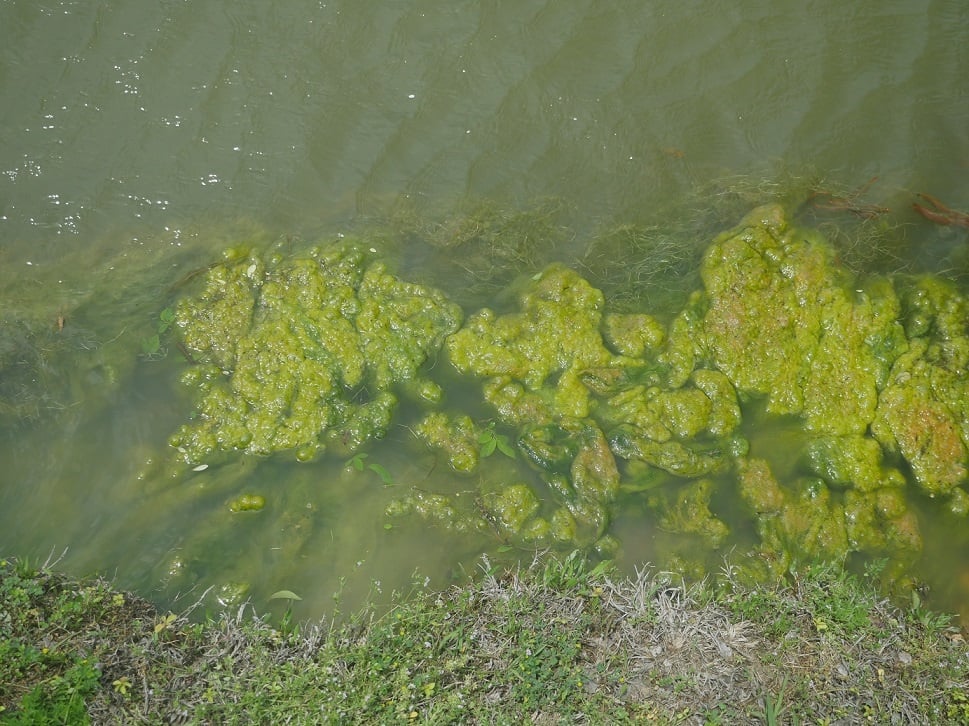Organic material such as leaves, branches, animal waste, and dead vegetation will accumulate at the bottom of your pond over time. Eventually these organic materials will begin to decay and will become what is commonly referred to as pond muck. Pond muck is often associated with a terrible rotten egg smell and unappealing appearance, which sends pond owners searching solutions.
The foul odor associated with pond muck is due to a lack of oxygen at the bottom of your pond. As organic matter decays it absorbs available oxygen, which aerobic bacteria require to break down organic materials. If oxygen is not available, anaerobic bacteria partially break down organic materials while releasing hydrogen sulfide, which creates the rotten egg smell. On top of having a raunchy smell, hydrogen sulfide can be toxic to pond insects.
Not only do pond insects help breakdown organic material, but they are also a food source for fish. Environmental factors that determine muck accumulation include pond age, depth, and biomass. Newly constructed ponds have no muck as it takes years for pond muck to accumulate. If muck is removed, via dredging for example, it will take multiple years for muck to reappear without continuous maintenance.
Deeper ponds typically have more muck build up, due to the anoxic characteristics associated with deeper waters. Shallower ponds are subject to more mixing and less stratification, meaning there is more available oxygen throughout the pond. Biomass entering your pond will eventually settle on the bottom, which leads to muck creation.
Solution
Commercial products are available to reduce pond muck. Specific naturally occurring enzymes can be applied to ponds to accelerate the decomposition of pond muck. Aeration devices are also sold as pond muck preventers. Bottom air diffusers increase the amount of oxygen at the bottom of your pond by circulating water within the entire pond water column, which prevents muck build up. Aerators also promote beneficial aerobic bacteria growth.
Another, albeit costlier, solution is dredging. Dredging physically removes years of pond muck build up from the bottom of your pond. Dredging provides the fastest results, but will be required as pond muck continues to occur in the following years. Pond muck is a natural occurring substance found in most ponds and lakes. Thankfully, there are solutions to decrease and eliminate pond muck. Contacting a Pond King biologist about pond muck prevention and removal is always an option.



